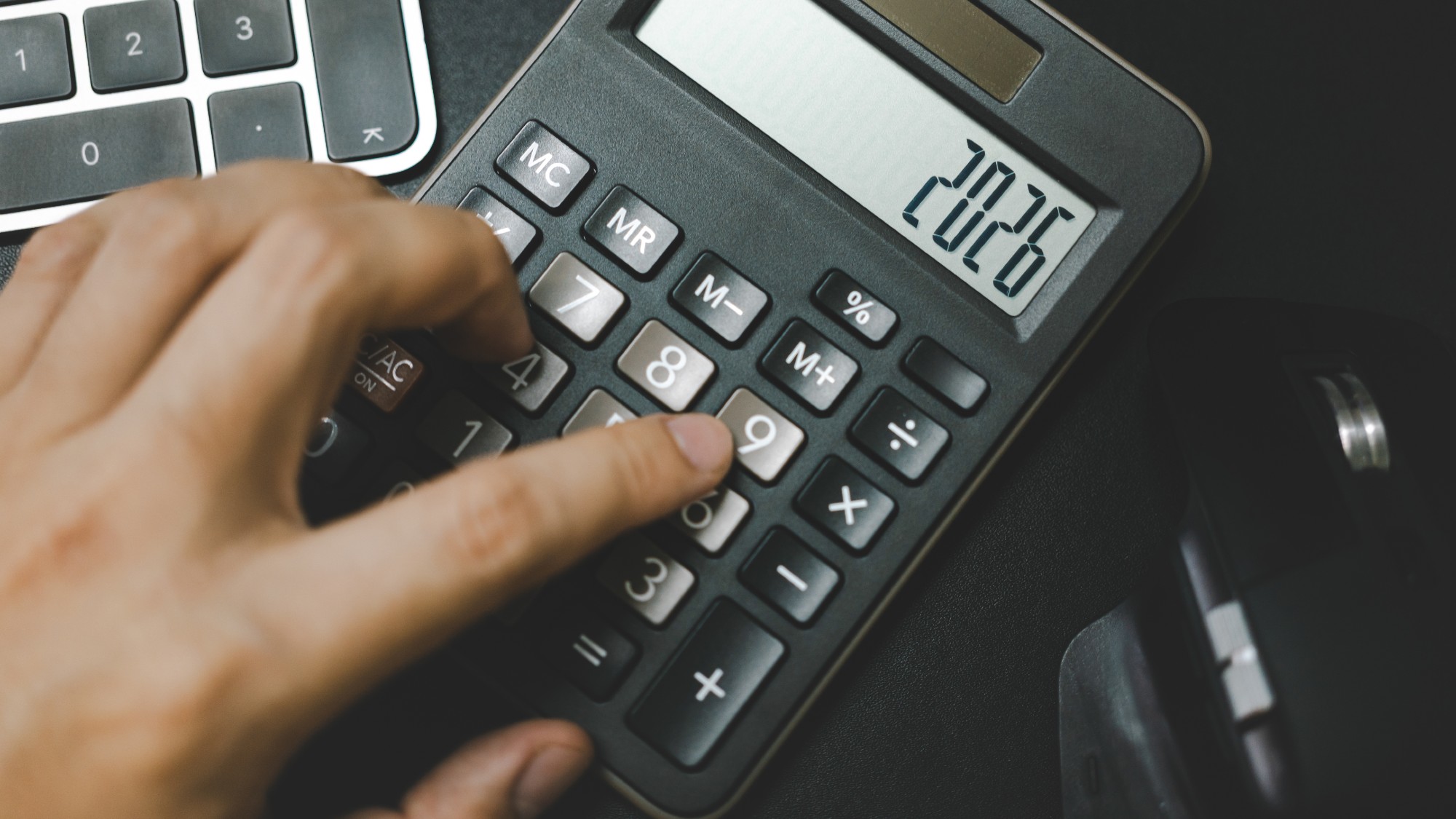Savings accounts: how to choose what’s best for you
If you’re squirrelling away some cash, it’s good to know your options

A free daily email with the biggest news stories of the day – and the best features from TheWeek.com
You are now subscribed
Your newsletter sign-up was successful

What’s the best way to save some money for a rainy day, or to put towards a financial goal? You could put your stash in your current account, but a savings account can help you earn better returns.
And now might be a good time to open one, as recent interest rate rises by the Bank of England have nudged banks to improve the returns offered on their savings accounts.
Savings rates are starting to “hot up after years of low returns”, said personal finance correspondent Kevin Peachey at BBC News.
The Week
Escape your echo chamber. Get the facts behind the news, plus analysis from multiple perspectives.

Sign up for The Week's Free Newsletters
From our morning news briefing to a weekly Good News Newsletter, get the best of The Week delivered directly to your inbox.
From our morning news briefing to a weekly Good News Newsletter, get the best of The Week delivered directly to your inbox.
Types of savings accounts range, and there are a few factors to consider when choosing one, explained MoneySuperMarket, “such as how much return you’ll get and how long it will take to access your cash”. Much of this will depend on your savings goal, the comparison website added. Here is a comprehensive rundown of the types of savings accounts on offer.
Easy access accounts
Easy access accounts give savers the flexibility to withdraw cash whenever they want without losing any interest. The downside with this option is you won’t see the biggest returns.
It’s best to use an easy access savings account as an emergency fund, said financial advice website Unbiased.co.uk, “where you’re more concerned about accessibility than interest rates”.
Savings offers from our financial partners
A free daily email with the biggest news stories of the day – and the best features from TheWeek.com
- Brown Shipley, 2.82% AER on £1,000 to £85,000, easy access. Withdrawals and deposits allowed (minimum transaction £500 and balance must remain between £1,000 to £85,000)
- Ahli United Bank, 4.2% AER on £1,000 to £85,000, fixed for one year. No withdrawals allowed during fixed term. Interest paid after 12 months
- Starling Bank, 3.25% AER on £2,000 to £1m, fixed for one year. No withdrawals allowed during fixed term. Interest paid after 12 months
- First Direct, 7% on up to £300 per month, fixed for one year, paid after one year. Making a withdrawal will result in less interest being paid. Must also open a First Direct current account (new customers qualify for £175 switching bonus).
Rates retrieved on 16 February 2023. When you apply via links on our site, we may earn an affiliate commission. Rates retrieved on 16 February 2023
Notice accounts
A notice account is similar to an easy access account, but rather than having instant access to your money, you will have to wait a set period – usually between 30 and 180 days – before your withdrawal goes through. There may also be a limited number of times you can withdraw during the year.
This is a good option “if you don’t anticipate you’ll need the amount you’re saving urgently and want higher interest rates but don’t want to pay a penalty for choosing to withdraw”, explained Unbiased.co.uk.
Fixed rate accounts
A fixed rate account may be worth considering if you are happy to lock up a chunk of your savings for a longer stretch of time.
Interest rates are typically higher with these accounts than with easy access accounts, but there is no “easy escape” from a fixed rate savings deal, said Ed Magnus at ThisIsMoney.co.uk, “as typically no withdrawals are permitted before the end date”. Some providers make it clear that access will only be granted in exceptional circumstances, the website added. You may lose earned interest if you want your funds before the product matures.
It can be hard to find a fixed rate savings account that beats or even matches inflation, especially with the rising cost of living. This means the “buying power of your money is reduced”, said MoneyHelper. Alternatively, investing in funds or through shares on the stock market tends to “do better than cash over the long-term, providing an opportunity for greater returns on any money invested over time”, said the site. But it warned that “there’s always the risk that your investments can go down as well as up”.
Regular savings accounts
A regular savings account lets savers earn interest by making regular monthly contributions. These types of accounts tend to pay the highest rates of interest compared to other cash savings accounts, but there are “certain restrictions involved”, said Moneyfacts.
There may be a minimum amount you have to contribute each month, as well as a cap. “Some will penalise you for missing a monthly payment and may not let you access your money until the end of the term,” the financial website added.
Individual savings accounts (Isas)
Individual savings accounts, or Isas, “can bring large tax benefits, especially for higher earners”, said MoneyWeek. But their rules can be somewhat complicated. Savers are allowed to put up to £20,000 into an Isa per year without paying income tax on any returns. You can withdraw money at any time without paying tax. While Isas aren’t an investment, per se, they are the “‘wrapper’ that goes around your savings and investments to protect them from the taxman”, MoneyWeek explained.
A savings account may be beneficial for short-term goals, said NerdWallet, as you are unlikely to exceed the personal savings allowance. But an Isa could be better for larger amounts as “you never have to worry about your interest exceeding the personal savings allowance”, it added. “It will always be tax-free.”
Whichever savings account you go for, generally, “the longer you lock your money away, the higher the rate you can get”, said Shares Magazine.
This article is based on information first published on The Week's sister site, MoneyWeek.com
Marc Shoffman is an NCTJ-qualified award-winning freelance journalist, specialising in business, property and personal finance. He has a BA in multimedia journalism from Bournemouth University and a master’s in financial journalism from City University, London. His career began at FT Business trade publication Financial Adviser, during the 2008 banking crash. In 2013, he moved to MailOnline’s personal finance section This is Money, where he covered topics ranging from mortgages and pensions to investments and even a bit of Bitcoin. Since going freelance in 2016, his work has appeared in MoneyWeek, The Times, The Mail on Sunday and on the i news site.
-
 ‘Restaurateurs have become millionaires’
‘Restaurateurs have become millionaires’Instant Opinion Opinion, comment and editorials of the day
-
 Earth is rapidly approaching a ‘hothouse’ trajectory of warming
Earth is rapidly approaching a ‘hothouse’ trajectory of warmingThe explainer It may become impossible to fix
-
 Health insurance: Premiums soar as ACA subsidies end
Health insurance: Premiums soar as ACA subsidies endFeature 1.4 million people have dropped coverage
-
 What to expect financially before getting a pet
What to expect financially before getting a petthe explainer Be responsible for both your furry friend and your wallet
-
 How to juggle saving and paying off debt
How to juggle saving and paying off debtthe explainer Putting money aside while also considering what you owe to others can be a tricky balancing act
-
 The pros and cons of tapping your 401(k) for a down payment
The pros and cons of tapping your 401(k) for a down paymentpros and cons Does it make good financial sense to raid your retirement for a home purchase?
-
 Saving for a down payment on a house? Here is how and where to save.
Saving for a down payment on a house? Here is how and where to save.the explainer The first step of the homebuying process can be one of the hardest
-
 Planning a move? Here are the steps to take next.
Planning a move? Here are the steps to take next.the explainer Stay organized and on budget
-
 What should you look out for when buying a house?
What should you look out for when buying a house?The Explainer Avoid a case of buyer’s remorse
-
 What to look for in a reliable budgeting app
What to look for in a reliable budgeting appThe Explainer Choose an app that will earn its place in your financial toolkit
-
 3 smart financial habits to incorporate in 2026
3 smart financial habits to incorporate in 2026the explainer Make your money work for you, instead of the other way around